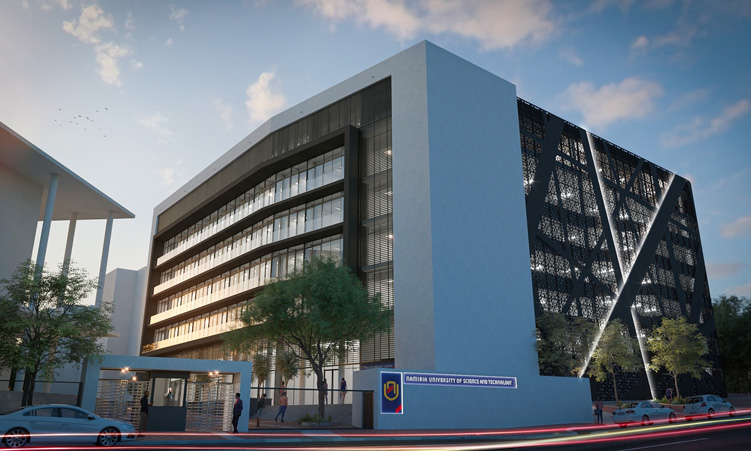A lecturer at the Namibia University of Science and Technology (Nust) says artificial intelligence (AI) has changed the way educators approach teaching.
Josephina Muntuumo says teachers and lecturers face the challenge of how to customise tutoring to individual students, but AI provides a solution to this.
“I believe it’s critical that AI be taught, not just at university, but also in high school. AI is changing the world and also how we teach,” she says.
This comes after Nust officially launched its Artificial Intelligence and Robotics Accelerator (Aira) on 5 November.
Muntuumo highlights the need to understand how AI models are built and trained in order to build models catering to African languages and culture.
“Teaching our students early on about AI will also help us build models customised to the African and Namibian context,” she says.
The state-of-the-art facility was made possible through collaboration between the university and the Bank of Namibia (BoN).
First-year computer science and software development student Siyanda Ndhlovu says he believes the integration of AI in schools could change how students see the world.
“We use technology every day, and devices such as cellphones and laptops will keep evolving, so it’s crucial to educate yourself on current technology,” he says.
Another computer science and software development student at the university, Azor Hijarunguru, says although AI-powered tools can foster creativity and problem-solving skills, it is important to use them ethically and responsibly, ensuring equitable access and addressing potential biases.
He says by personalising instruction, identifying individual learning needs and automating routine tasks, AI can empower students to learn at their own pace and reach their full potential.
“By embracing AI as a tool for learning and innovation, we can equip future generations with the skills and knowledge they need to thrive in an increasingly complex world,” Hijarunguru says.
Speaking at the launch of the facility, Nust vice chancellor Erold Naomab said it is not only a technological milestone, but represents the university’s commitment to shaping future generations.
“By equipping our students with skills in these fields, we are ensuring that they will not only thrive in a rapidly evolving world, but that they will lead Namibia’s transformation in vital sectors such as healthcare and agriculture,” he said.
Naomab said one of the key objectives of the laboratory is to ensure that disruptive technologies that may change jobs and lead to upskilling and reskilling needs in the workforce are adopted in a human-centric, sustainable and effective way.
The laboratory features state-of-the-art high-performance workstations, robotics equipment, a top-of-the-range 3D printer, and a humanoid Sanbot ELF robot called ‘Anna’.
“The robot is a critical instrument that supports research on human-computer interaction and automation,” Naomab said.
He said the BoN Aira Laboratory will support the implementation of two new academic programmes: a bachelor’s and an honours degree in artificial intelligence.
These programmes will start in 2025.
Deputy BoN governor Leonie Dunn said the lab is an accelerator, designed to encourage the active participation of students, faculties, and industry professionals in solving real-world challenges.
“This facility will not only serve as a training ground for our future workforce, but also as a beacon of inspiration for the nation,” she said.
Stay informed with The Namibian – your source for credible journalism. Get in-depth reporting and opinions for
only N$85 a month. Invest in journalism, invest in democracy –
Subscribe Now!








